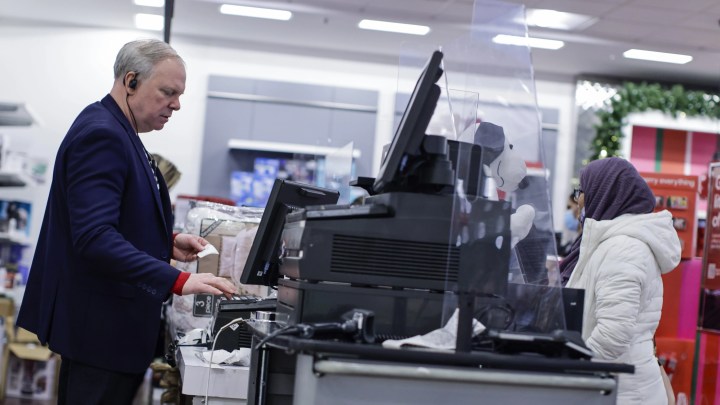
Nearly half of small businesses believe the economy won’t improve in the next 6 months
Nearly half of small businesses believe the economy won’t improve in the next 6 months

Small business owners in the U.S. aren’t feeling so great about their prospects right now. Nearly half of them believe the economy won’t improve in the next 6 months.
That’s according to a report from the National Federation of Independent Businesses — or NFIB. Inflation and a very tight labor market have a lot to do with their grim outlook. But some companies are finding workarounds.
The responses to this month’s small business survey read a bit like a broken record. When it comes to sales, inventory, hiring and credit conditions, small business owners are wary.
“They don’t find it particularly a good business condition — they don’t expect it to improve for the most part,” said Holly Wade, who leads the NFIB’s Research Center. “And also, they don’t find it favorable for business expansion.”
According to Wade, there are two main culprits. “It is still all about the tight labor market and inflation,” she said.
Nearly half of small businesses have at least one job opening they can’t fill, according to NFIB’s survey. Wade said that’s going to be a big hill to climb for companies that need to staff up for summer, but businesses are finding ways to adapt.
“Limiting business hours is often one way that many small business owners are trying to navigate the staffing shortage,” Wade said.
Other small businesses are trying to attract workers by boosting benefits, offering flexibility and, of course, raising pay.
“We have given hundreds of raises in the past few years,” said Christina Soverns-Schwartzman, who runs the Sawgrass Recreation Park, an eco-adventure outfit in the Florida Everglades. They give boat tours to see Florida alligators and offer fishing and camping on their 17 acres of wetlands.
Soverns-Schwartzman employs about 50 workers in peak summer.
“So our payroll has gone up 220% since before COVID,” she said.
Still, Soverns-Schwartzman is optimistic. With people traveling again, her business is busier than ever. So she’s investing — in new boats, new docks and updated restrooms. She wants to add even more upgrades, but inflation is a challenge.
“I would estimate our hard costs have increased across the board and probably between 15 to 25%,” she said.
That means she’s had to raise prices. That flexibility is key, according to Glenn MacDonald, an economics professor at Washington University in St. Louis.
“We used to have a little better sense of how all these things work, so I think there’s that extra element of uncertainty,” MacDonald said.
COVID, inflation, a labor shortage and the threat of recession — for small businesses the last couple years — have added obstacles to an already tricky course.
There’s a lot happening in the world. Through it all, Marketplace is here for you.
You rely on Marketplace to break down the world’s events and tell you how it affects you in a fact-based, approachable way. We rely on your financial support to keep making that possible.
Your donation today powers the independent journalism that you rely on. For just $5/month, you can help sustain Marketplace so we can keep reporting on the things that matter to you.

















